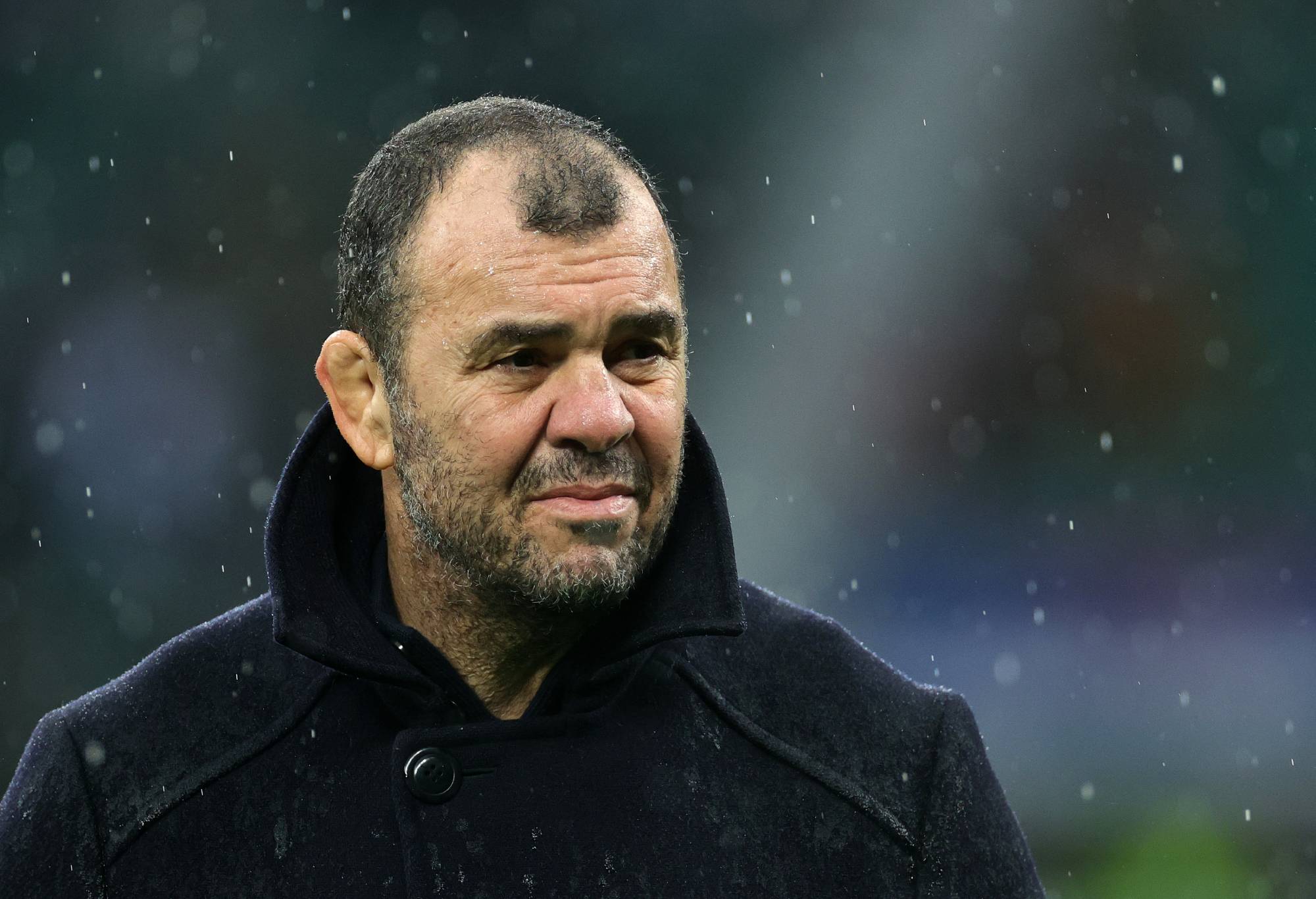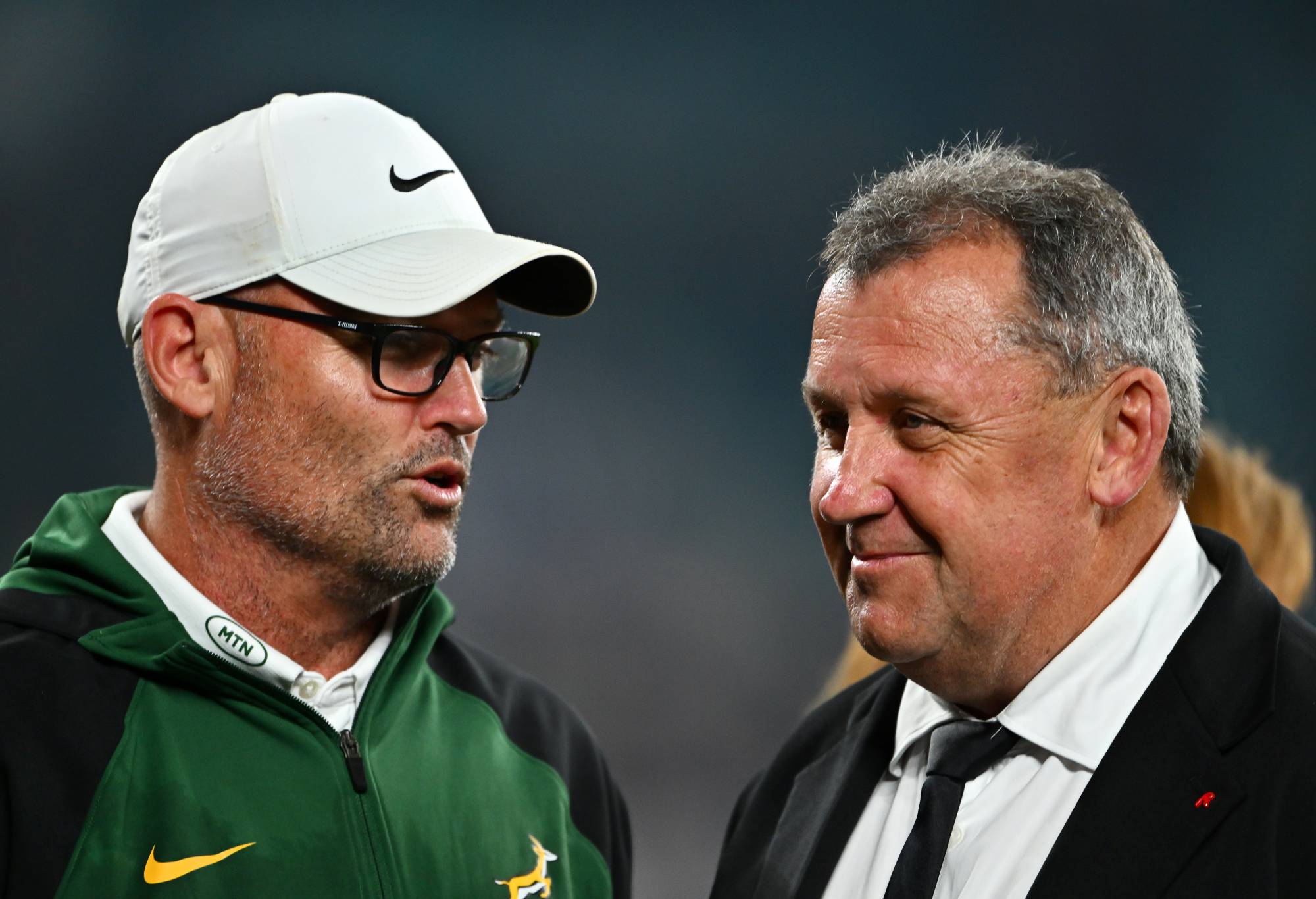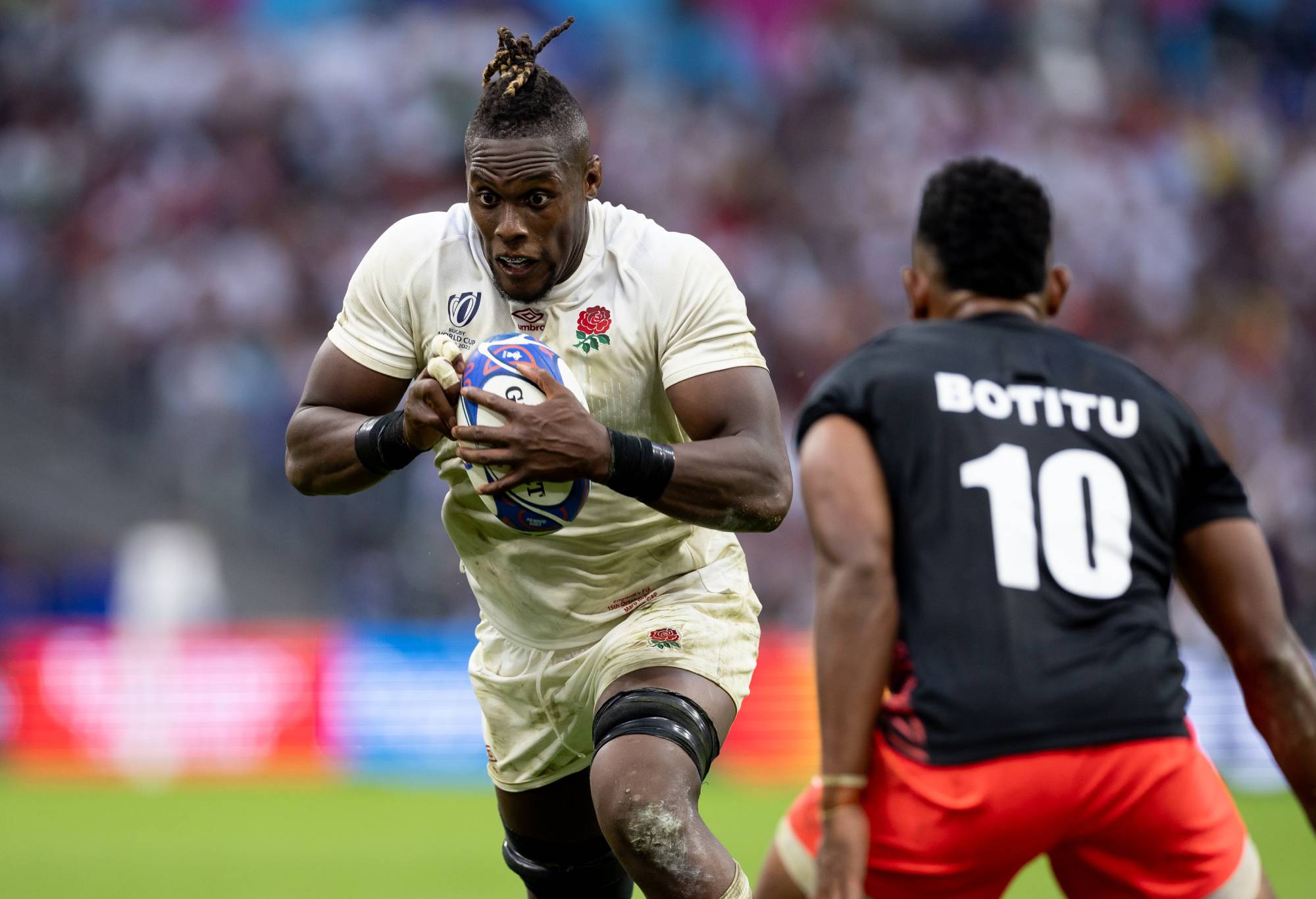The gentle rains have come to the shrugging Alps and bright cashmere scarves are shielding the French as they return to work, chastened.
Four visiting teams remain in the outskirts of Paris, selecting and mulling over tactics, and talking to themselves about the weekend.
Life outside the capital is quieter, with a slower smile and deeper gaze. The talk is about strikes and crime and the wider world’s woes.
When the conversation turns to the Cup of Rugby, a wistfulness finds a way into the air of the boulangerie.
Rugby returned to its typical place in L’Equipe: pages 16-18 (football has the first nine) with a two-page interview of France’s Carter Gordon: 20-year old left wing Louis Beille-Biarrey, mercilessly picked on by the Springboks’ Pieter-Steph du Toit and Eben Etzebeth. He spoke of a brutal return to reality.
Gone is the acrimony; the referee appointments for the semifinals — elevating the perceived villain or naif (nonplussed Ben O’Keeffe) to the top echelon — ending the delusion.
World Rugby squashed Antoine Dupont’s boeuf by stating “selection is based on merit” appointment for England vs South Africa and put a hush over the miniature storm of collective protest.
Perhaps protest is too strong a word. The word may be: wound. Or embarrassment. Or just: sigh (le soupir) rather than a shrug.
As the late Jacques Barzun wrote about his countrymen: “The French call mot juste the word that exactly fits. Why is this word so hard to find? The reasons are many. First, we don’t always know what we mean and are too lazy to find out.”
But France is a country of protest; a perpetual revolution. A country forever questioning.
What are the leaders of the four remaining teams asking their teams to do? They are the four men who most exemplify one each of Don Miguel Ruiz’s Four Agreements and none of the others: be impeccable with your word (Cheika), don’t take anything personally (Foster), don’t make assumptions (Erasmus), and always do your best (Borthwick).
Argentina: “What One Man Can Do.”
Michael Cheika is a man who likes new ideas. We can picture him as a stubborn rebel on the ramparts, the captain of course, exhorting tired fighters to go again, and again.
He has always fancied guerrilla rugby, whether at Leinster or the Waratahs: the force of will over techne, the purity of the fight over the precision of the plan.
His team is the hindmost underdog of the foursome due to the opening round, when England dropped them into a pit of despair. Cheika and his sidekick Felipe Contepomi have been digging the Pumas out of the hole they fell into, with a new layer of patience and insatiable hunger.

Michael Cheika, the Argentina head coach looks on during the Autumn International match between England and Argentina at Twickenham Stadium on November 06, 2022 in London, England. (Photo by David Rogers/Getty Images)
I imagine he has a team thought for the week and has his coaches entrenching it into the players’ souls: “What one man can do, another can do” or “Lo que un hombre puede hacer, otro hacerlo.”
Cheika has never acknowledged anyone’s superiority over him or a team he runs. Yes, he evened out the way he reacts to losses. He is harder on problems than people.
But his edge as a coach has never been in technical innovation as much as it has been about finding the indomitable core in a group of true believers. He is not the cuddly type; he trusts boundaries, borders, belligerence, and battlers.
His loose forwards can all play from No.6 to No. 8; his back three are interchangeable. But passion — and your word — is non-negotiable. Cheika knows how to make an agreement and keep it.
The Pumas fanbase in France rivals the Irish for volume, if not size. When I saw them in Saint-Etienne for my sixth match, they were the first to drown out ‘La Marseillaise.’
Contepomi has persuaded the backline to run dangerous lines. The pack is as hard as any. They have to pull off the upset of their lives.
A descendant of Maronite leaders in war and business, Cheika will have 23 Argentine boys thinking they can do what their opposite number All Blacks can.
Granite ruckman Marcos Kremer will rate himself slightly harder than lanky Shannon Frizell, lithe Guido Petti will consider his lineout skills the best on the pitch, Emiliano Boffelli will see every kick go over before it probably does, and the entire orchestral crescendo will sound in a fury for this cataclysm.
New Zealand: “Be Yourselves”
Ian Foster has the cheerful but ironic eyes of the man on your street who volunteers to be Father Christmas every year and swears each time it is the last. He has a memory of the insults he wore in 2022 but does not let them wipe his smirk off or rob him of good cheer. As a short-timer, he is closer in tournament temperament to Simon Raiwalui (who made his decision to leave a while ago) than the other remaining chiefs.
When the All Blacks were based in Lyon, after their German reset, I went looking for them. Gossip put them in the Confluence, shopping. A sighting in a gym in Ecully. Oyster-slurping giants in Tassin. Some guy named Barrett at a bar in Saint-Jean. I even walked into the practice pitch behind a catering van. They were as invisible as their loose trio were at rucks in the glory days of 2015.
But they were never going away easily. The All Blacks score too fast to ever write them off; if they could just rediscover their defensive DNA.

Jacques Nienaber, Head Coach of South Africa, and Ian Foster, Head Coach of New Zealand, speak at full-time following the Summer International match between New Zealand All Blacks v South Africa at Twickenham Stadium on August 25, 2023 in London, England. (Photo by Dan Mullan/Getty Images)
During the decider to retire Johnny Sexton or Sam Whitelock, the bridge between the teams, Joe Schmidt stood the entire match. When Will Jordan scored untouched, old Uncle Joe’s fingerprints were glaring. Starter plays of the gods; subtle flaws exposed. Then, the old fighters hunkered down, shouldered up, and gripped on for the win.
One felt Rieko Ioane, the brothers Barrett, Aaron Smith, Ardie Savea, and Brodie Retallick say inaudibly: “Did you think we would go down without a junkyard dogfight?”
They found themselves just in time.
Cheshire Foster will just stroll around all week saying: “Be yourselves; now listen to Joe.”
England: “Four left. Why not us?”
Steve Borthwick is laconic, but to make it shorter and less French, he would say: “conic.”
He is the final four coach most able to play right now, and his quiet intensity might sneak him on to a 7-1 bench.
Borthwick does not ask any of his players to do an exotic thing. Do your best. Do it again. And again.
Ollie Chessum may be Borth’s proxy player: giving it all and his all is a lot.
Jamie George has found his smile again, as he rifles the ball to a more focused Maro Itoje, who drops the ball perfectly to Benjamin Arthur Earl, whose haircut is Borthwickian and could easily be cast as a knight, and Earl cuts into lines, waiting for Courtney Lawes in the form of his life, and that is saying something, whilst Manu Tuilagi and Joe Marchant are taking every inch on offer and then another.

England’s Maro Itoje runs the ball against Fiji. (Photo by Gaspafotos/MB Media/Getty Images)
Danny Care is the oldest scrumhalf left but he has been ace: he does his best on every play, with a smile.
Strength and conditioning guru Aled Walters, who gave Frans Malherbe abs, is not flashy (does Borthwick allow flash?) but he must be the best pickup in the Cup. England is fit.
The issue for England is in the old 10-15-23 axis: can they steer the ship like Horatio Nelson (“damn the tactics, go straight at ‘em”) or bust the Bok dam like the WWII fliers? No matter if it is Owen Farrell or George Ford or Marcus Smith or Freddie Steward at the tiller, this team will evoke Borthwick’s tiger spirit: “Four left; why not us?”
The answer of course is: the Boks stand in the way and have only ever let England score one try in a World Cup in five matches.
South Africa: “Now go $%#@ them up again”
The Boks have a duo at the helm: a half-mad visionary and a stats-mad dictionary who are great friends with a clear pecking order.
Rassie Erasmus believes it can and must and will all work out if he can just figure out the code, the mystery, the shroud behind the mirror, the password to winning. As a boy from a very modest background (he had to hitchhike to his first Test in France) and a severely addicted father, he assumes nothing at all, except that it will all be a struggle and he will be in trouble, but in the end, it will have been worth it.
Jacques Nienaber assumes everything can and will go wrong; including the pronunciation of his name. He measures the limits of Rassie’s daydreams. He will be telling the Bok players, with whom he has an almost “smart little brother” vibe, that “you are ready; I promise you” whilst a smiling Rassie will walk in and interrupt with this wisdom: “Now go and %£€£*$&¥ them up. Again.”































































































